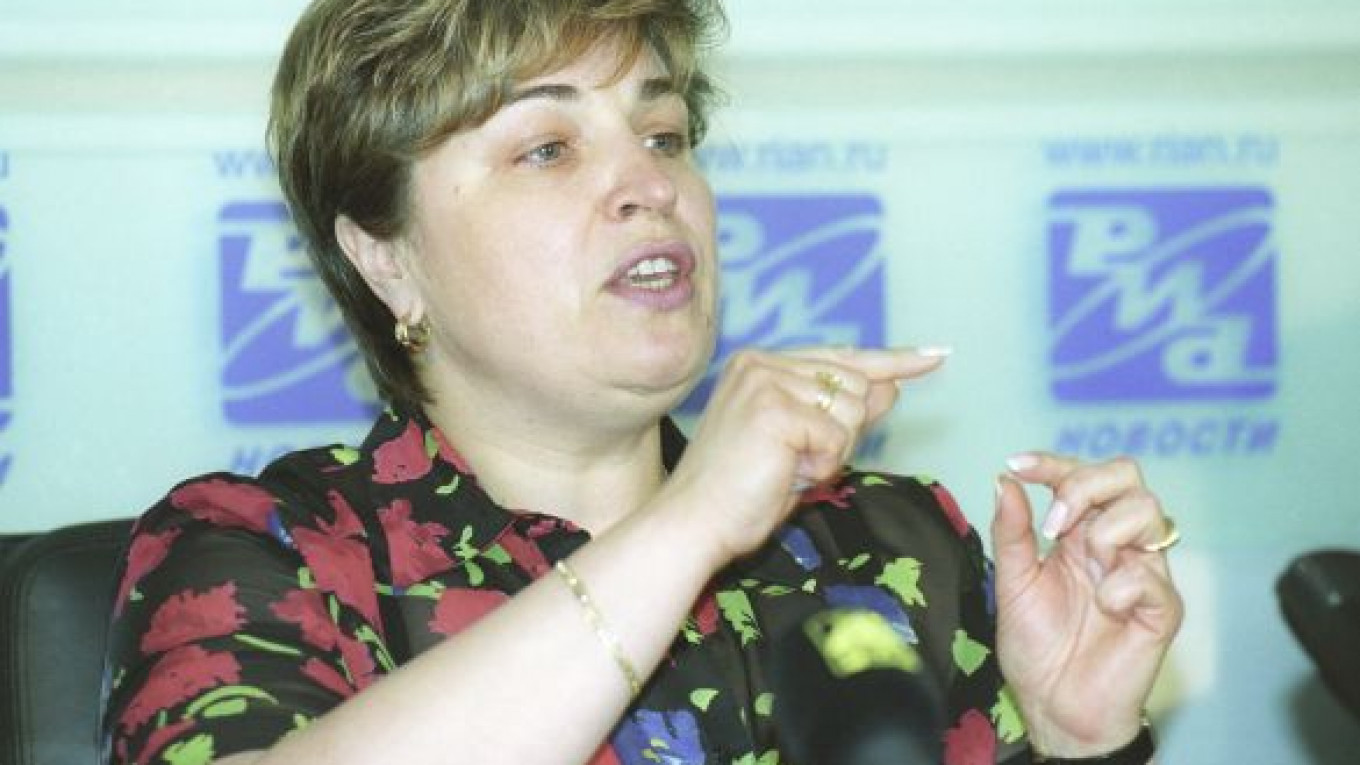A battle is underway in the government over planned spending cuts, but Prime Minister Dmitry Medvedev is so far throwing his weight behind advocates of a tight budget, Deputy Finance Minister Tatyana Nesterenko said.
"The main intrigue is: Will the government stand its ground or not?" she said in an interview with Reuters.
While the government's balance sheet looks strong, with some $500 billion in foreign exchange reserves and relatively little government debt, the country has consistently failed to diversify its commodity-driven economy. Oil and gas provides around half of both exports and federal budget revenues, making fiscal stability highly vulnerable to swings in fickle international commodity prices.
Earlier this month, Medvedev's cabinet discussed a draft budget for 2013-2015, which anticipates sizable spending cuts compared with earlier plans.
The plan is strongly supported by the traditionally hawkish Finance Ministry, headed by Anton Siluanov, which regards an effective spending freeze as essential to reduce the budget's excessive dependence on volatile international oil prices.
"For now this is difficult for ministries and agencies to realize, because we have grown accustomed to grow [expenditures] every year — a trillion more, a trillion more — and here for the first time we have to make a minus," said Nesterenko, the deputy minister responsible for budget planning.
She said that so far, Medvedev was backing tight spending restraint, but that changes were still possible between now and October, when the budget will be submitted by the government for parliamentary approval.
"This will be a very serious challenge for the government, because the majority are counting on the fact that something will still be revised, and [spending] will be increased," she said.
Under the budget plan, Russia intends to cut spending by 343 billion rubles ($10.5 billion) in 2013, compared with its previous projections.
The plan also envisages reducing the share of federal government spending to 18.8 percent of gross domestic product in 2015, down from 21 percent in 2012, and reducing the oil price at which the budget balances to $105.4 per barrel in 2015, from its present $116 per barrel.
Meeting those targets would enable Russia to comply with a new fiscal rule, which is designed to base expenditures on the long-term average oil price over previous years, instead of the forecast oil price as at present.
Although this rule will be partly followed in 2013-2014, it would not be fully adopted until 2015. Until then, the government will only cut expenditures defined in previous budget plans as "conditional."
Nesterenko said that because of this limitation, the planned expenditure cuts in 2013 were significantly less than the 900 billion rubles that full compliance with the new oil-price rule would have entailed.
Even with this proviso, the fiscal rule would nevertheless provide a disciplining effect, preventing the government from spending higher budget revenues, she said.
"The main difference of this budget cycle is that additional revenues don't help us increase expenditures, because they are fixed by the budget rules," she said, adding: "If the government doesn't retreat from its declared budget rules."
Nesterenko said there was still the possibility that the new budget rules would be watered down, because of pressure from other ministries to boost spending.
The budget arithmetic has also been made difficult by expensive pre-election promises made by President Vladimir Putin, such as increases in public sector pay, which were not envisaged in previous budget plans.
The Finance Ministry estimates the combined cost of these extra commitments as 2.799 trillion rubles ($85.8 billion) from 2013-2015 — implying that sweeping expenditure cuts will be needed in other areas merely to keep overall spending steady.
The ministry has proposed a range of measures to make savings of 2.53 trillion rubles ($77.6 billion) in the next three years. They include cutbacks in the army and police, lower regional subsidies, reforms to the pension system, as well as a less generous system for indexing social benefits — all strongly resisted by other government departments.
At one recent meeting of the government's budget commission, designed to study spending cuts, the assembled officials ended up by proposing plans that would have instead raised spending by an additional 700 billion rubles next year, Nesterenko said.
"Opponents say that the Finance Ministry is allowing itself to work out measures that aren't part of its competence," she said. "What does it have to do with military or pension reform? Why is the Finance Ministry sticking its oar in? Well, because nobody suggests anything else."
A Message from The Moscow Times:
Dear readers,
We are facing unprecedented challenges. Russia's Prosecutor General's Office has designated The Moscow Times as an "undesirable" organization, criminalizing our work and putting our staff at risk of prosecution. This follows our earlier unjust labeling as a "foreign agent."
These actions are direct attempts to silence independent journalism in Russia. The authorities claim our work "discredits the decisions of the Russian leadership." We see things differently: we strive to provide accurate, unbiased reporting on Russia.
We, the journalists of The Moscow Times, refuse to be silenced. But to continue our work, we need your help.
Your support, no matter how small, makes a world of difference. If you can, please support us monthly starting from just $2. It's quick to set up, and every contribution makes a significant impact.
By supporting The Moscow Times, you're defending open, independent journalism in the face of repression. Thank you for standing with us.
Remind me later.






